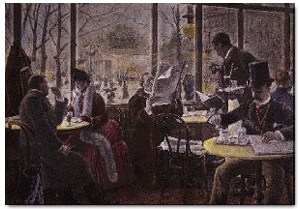Main Menu · Search · Current Issue · Contact · Archives · Centennial · Letters to the Editor · FAQs
![]()
Main Menu ·
Search · Current Issue · Contact · Archives · Centennial · Letters to the Editor · FAQs
![]()
Print scrolls by in black and white; the world rushes by in full color. We social scientists, therefore, often feel caged. Field work helps me break out of the confines of the academy, to tap the vitality of the "real" world to bring new dimensions to my research and teaching. Field work helps me to provide a perspective that is authoritative because it has been lived. Insofar as I can render texts tactile and impart to lines of argument the immediacy of life, I can better teach.
The energy flows not only from the field to the classroom but also from the classroom to the field. When ideas illuminate reality in ways that can be confirmed, something rare and powerful has taken place and we researchers experience a jolt of excitement that rekindles the life of the mind.
My research into the world of coffee sparked this sensation. The ICO possessed a bicameral legislature, with a house of producers and a house of consumers. The ICO assigned each producer a quota; before that quota could be enforced, it had first to be approved by a majority in both houses. The members' votes were weighted, with large producers, such as Colombia, casting more votes than smaller producers, such as Uganda. The legislature met periodically, and for one term I attended its meetings. There I watched elegantly garbed, carefully coiffed, and expensively educated members of this government of coffee bargaining over quotas, with the diplomats from each producer seeking a small overall quota--the better to raise the coffee price--but larger quotas for their own nations.
 Cafe Josty, Potsdamer Platz, by Paul Hoeniger (1890). AKG LONDON.
Cafe Josty, Potsdamer Platz, by Paul Hoeniger (1890). AKG LONDON.
|
In the classroom I teach game theory, a form of mathematics used to model political processes, particularly in electoral settings. When analyzing the data gathered at the ICO meetings, I saw the opportunity to test these models by seeing whether they could predict the assignment of quotas. I still recall the excitement I experienced when I discovered that the quotas calculated from these models by an exceptionally gifted graduate student, Donald Lien, actually forecast the quotas voted by the ICO.
While savoring this result, my mind returned to the sessions in London: breakfast with the United States delegation in Claridge's, paid for by a U.S. coffee firm; cocktail parties in the American embassy, paid for by U.S. taxpayers; delegates in silk ties, tailored suits, and buffed shoes, gliding down corridors and gathered in intimate discussion. As forecast by our theories, the rules that structure the ICO had channeled these deliberations and shaped their outcome. But then my mind drifted further: What if the Uganda delegation had possessed one more vote? Returning to the equations, Lien quickly calculated that an additional vote for the Ugandan delegation would have enabled it to bargain for an increase of X tons of coffee exports (I no longer recall the exact figure). Calculating again, we figured that each additional bag that year would have been worth at least an additional $200--an amount equivalent to the average per capita income in Uganda. With that money, a coffee farmer could have purchased clothes for his children, replaced his thatched roof with metal sheeting, purchased cattle--or food for his family when drought withered the crops in the field.
The theoretical insights that I teach in the classroom had enabled me to penetrate beneath the surface of things in the world of coffee: the give-and-take in the corridors, for example. They had also empowered me to make far-ranging connections, meaningfully interrelating classrooms in Cambridge, corridors in London, and the huts of farmers in eastern Africa. Ideas that predict, penetrate, and encompass should be treasured. For academics, ideas yield joy and inspiration.
![]()
In the world of coffee, I had learned that power can enable; it makes possible the elementary decencies of life, as well as its more elevated attainments. But power can also exclude; using it, the fortunate can defend their privileges, while marginalizing the claims of others. The ultimate mark of privilege is to achieve sufficient security that one can ignore the coercion that makes such security possible.
Look at the illustrations for this article. In the Hoeniger painting sit people like many of us, albeit in Edwardian garb, dallying over a cup of coffee. In the Portiniari sprawls the "real world." The vivid contrast between labor and leisure, poverty and wealth, and the production and consumption of coffee highlights the magnitude of the gap between our daily lives and the world that surrounds us. The downcast eyes of the coffee drinkers--or the eyes they have only for each other--bespeak the way in which we avert our gaze to secure private lives, free from unsettling intrusion. The illustration suggests that power not only enables. Power also marginalizes. The rich, being powerful, can ignore the poor; the consumer, the toiler in the fields.
Research enables us to bring the world into the academy. It sharpens our perceptions, informs our understandings, and stimulates our thinking far more powerfully than most other forms of inquiry. Research also empowers us to transform others. Over a cup of coffee, I might now be able to explain to a student what has made possible this private moment of conversation: how, politically, it has been achieved, and what, politically, it signifies.
Main Menu ·
Search · Current Issue · Contact · Archives · Centennial · Letters to the Editor · FAQs
![]()